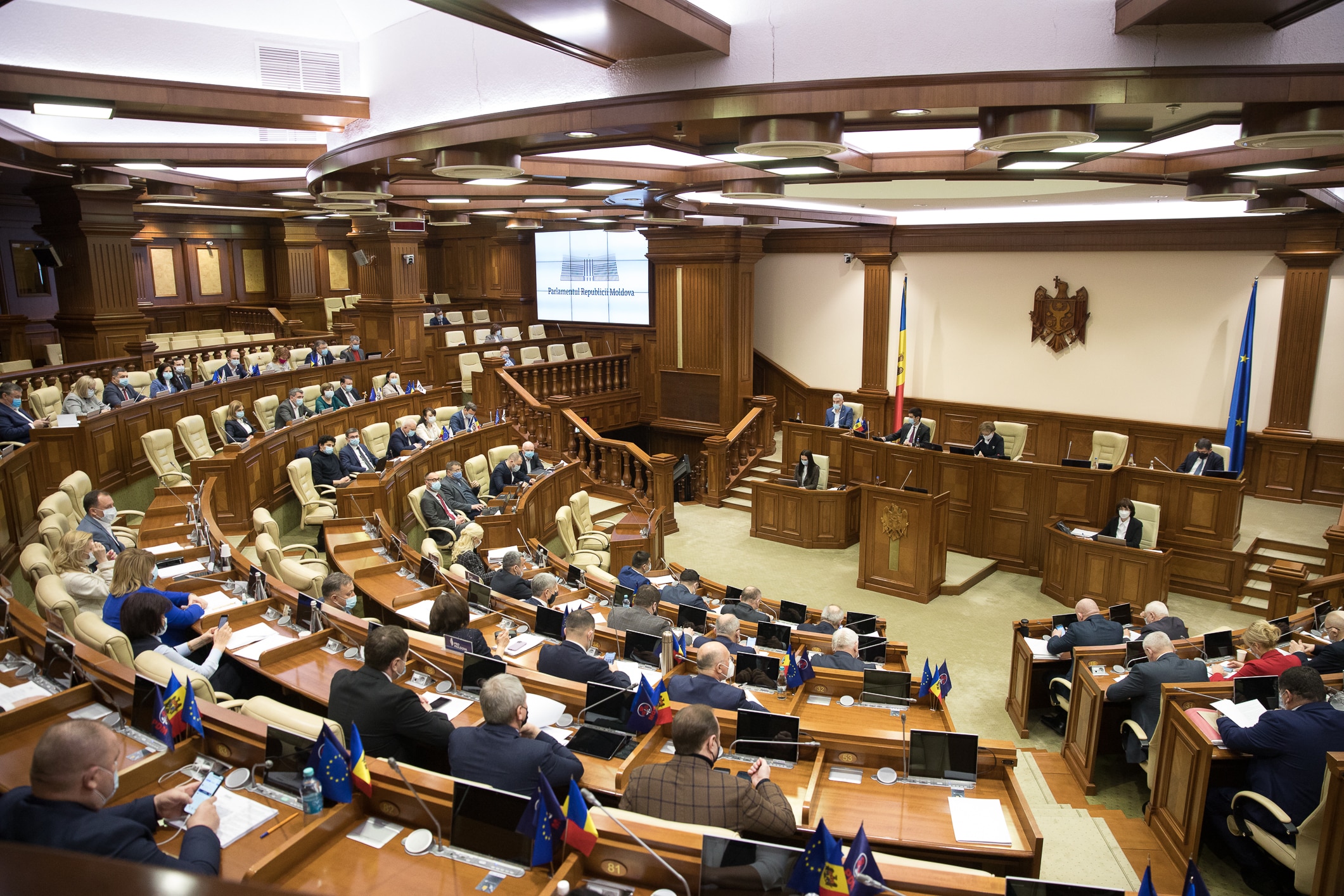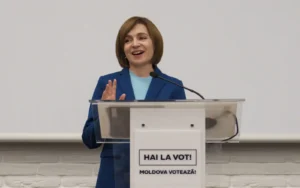Photo: Wikimedia Commons
Under the Party of Action and Solidarity (PAS), namely President Maia Sandu, former PM Natalia Gavrilita, and incumbent PM Dorin Recean, Moldova has taken a significant pro-Western and pro-European turn since 2020. Russia has repeatedly responded with attempts at destabilising the country. Recently, developments of the infamous Shor party have led the tension between Russian and European sentiments in Moldova to gain renewed relevance.
Pro-European influences
Following the Russian invasion in Ukraine, pro-European sentiments in Moldova have significantly increased, leading to the vast majority of Moldovans being in favour of EU-membership. Moldova was granted EU candidate status in 2022, after which the government has adopted obligatory EU-legislation, leading to appraisal from the European Commission. While it is President Sandu’s goal to take Moldova into the EU by 2030, the country still struggles to effectively fight corruption. Thankfully, at the end of June, the European Commission and the European External Action Service put together a package of support for Moldova to tackle the impact of the Russian invasion in Ukraine and to help them strengthen their ties to the EU. The support is mainly focused on facilitating economic development and connectivity, reforms, energy, security, and strategic communication.
Pro-Russian influences
Many suspect that Russia, if it had succeeded in its initial war aims, would not only have captured Kyiv and Odesa, but also Chisinau. This has led to growing fears in Moldova, despite a historically strong pro-Russian sentiment. This is part of the reasons why a state of emergency has been declared in Moldova ever since Russia invaded Ukraine. Alongside other measures against Russian interference, in January 2023, President Sandu’s government introduced a new electoral law that sought to decrease Russian influence. Nonetheless, former Prime Minister Gavrilita stepped down in February 2023 due to the ongoing pressure from Russia through energy blackmail, as she stated herself. Not much later, the Ukrainian secret service obstructed “quite concrete plans” for a pro-Russian coup in Moldova which led the country to tighten control over its borders and to the US placing sanctions on seven Russians.
Growing Russian threats to Moldova also include the pro-Russian breakaway region of Transnistria, in which 1500 Russian soldiers are located as a ‘peacekeeping force’. The Moldovan parliament passed a new anti-separatist law in February which has further intensified pressure on the region.
Furthermore, Russian attempts to increase their influence and interference in Moldova is highly evident in the Kremlin’s rhetoric about the illegitimacy of the Moldovan government. Russia has been supporting pro-Russian parties and accusing President Sandu of dragging Moldova into the war and bankrupting Moldovians.
The Shor Party
The tension between pro-Russian and pro-European influences has gained higher relevance with the recent developments of the populist pro-Russian Shor party. This party is headed by fugitive oligarch Ilan Shor, who was sentenced to a prison sentence of 15 years after the court found him guilty of large-scale money laundering. The party is involved in pro-Russian and anti-government demonstrations and has even won a governor-elect and six parliamentary seats.
However, due the party’s paid protests, vote buying, and close ties to Russia, the Moldovan Constitutional Court banned the party on the 19th of June 2023, declaring it as unconstitutional and illegitimate for promoting a foreign state’s interests, which is in contradiction to the rule of law and endangers the sovereignty and independence of Moldova.
Not much later, Ilan Shor responded by creating a new political bloc replacing the Shor Party, stating: “I decided to form the ‘Chance, Obligations, Achievements’ political bloc. The abbreviated name is the ‘S.O.R’ bloc, and it has two objectives: to achieve victory in the local, presidential and parliamentary elections but also to do everything possible for Moldova to become rich, prosperous and truly independent”. Authorities suspect him still being financed by the Kremlin.
Conclusion
The Kremlin’s many attempts to interfere in Moldova’s political life and aggression against neighbouring Ukraine has only improved pro-EU sentiment in Moldovan society, with less people preferring a close relation with Russia over one with the EU.
This has been especially evident during the Sandu-led pro-EU demonstrations which took place on the 21st of May. Partly in response to the growing anti-European and pro-Russian sentiments, fueled by the Shor party, an estimated number of 75,000 people rallied in Chisinau in support of closer ties to the EU.
Hopes are that with sufficient support from the EU and progress in terms of meeting its recommendations, Moldova takes the right steps in becoming closer to being a EU member state and prevents Russian influences such as Ilan Shor from being a credible threat to the country’s democratic institutions.
Written by Luna Sent



